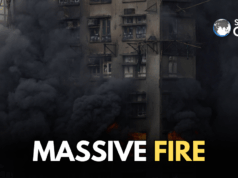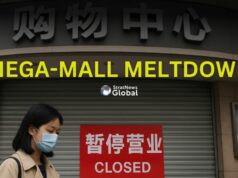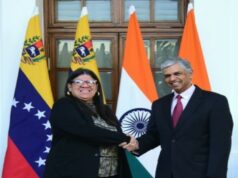
President Aleksandar Vucic announced on Sunday that Serbia would assist in investigating an explosion in Kosovo, which disrupted water supplies and has been attributed to Belgrade by the Kosovan government.
The explosion on Friday evening hit a canal that sends water to Kosovo’s two coal-fired power plants – accounting for most of the country’s power production. It also caused water supply cuts in some parts of the country, but there were no power cuts.
The incident inflamed longstanding tensions between Kosovo and Serbia. The Kosovo government called the explosion an act of terrorism by Serbia, which Serbia denied.
“Finding out the truth is in the best interest of our country,” Vucic told reporters on Sunday. “We are ready to share information with everyone even with Pristina.”
He reiterated that Serbia had nothing to do with the explosion. He also accused Kosovo Prime Minister Albin Kurti of using the incident to firm up his grip in the north of the country, where a Serb majority refuses to recognise Pristina institution and sees Belgrade as their capital.
The Kosovo government has not said why it believes Serbia was responsible for the explosion.
Kosovo police arrested eight people and seized weapons and explosives on Saturday in raids in connection with explosion. Kosovo media reported on Sunday that water supplies were getting back to normal.
Kosovo declared independence in 2008, almost a decade after NATO bombed Serb forces to halt the killing and expulsion of ethnic Albanians from the region during a 1998-99 war.
But Serbia does not recognise Kosovo as its sovereign state and together with its ally Russia is blocking Kosovo’s membership in the United Nations.
Both Kosovo and Serbian governments have set membership in the European Union as their goal, but in order to achieve that the two countries have to normalise relations.
Nearly 17 years after Kosovo’s declaration of independence, more than 4,000 NATO troops oversee fragile peace in the country.
(With inputs from Reuters)




